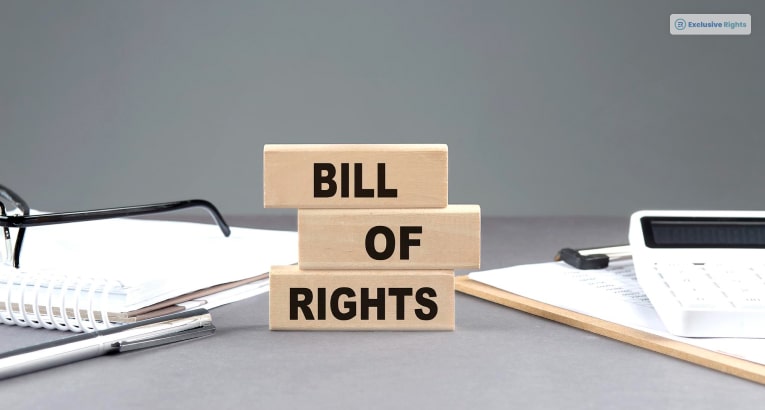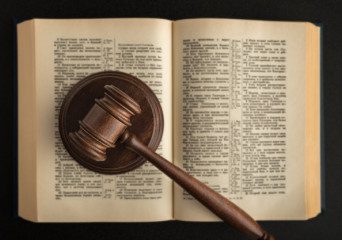
Table Of Contents
All You Need To Know About The Bill Of Rights
Every nation across the world has the ability to provide its citizens with rights. The Providence of Rights allows a nation to provide basic freedom to its citizens as human beings.
Rights also enable citizens to be protected from wrongful acts from other individuals or authorities. In this article, we will discuss the Bill of Rights and ensure the 10 vital rights given to all Americans.
What Is The Bill Of Rights?

The Bill of Rights is the first of ten Amendments that are within the US Constitution. This document spells out the rights of every american in relation to their government.
The Bill of Rights guarantees the liberties and civil rights of every individual who is residing within the United States. These civil rights and liberties include freedom of speech, religion, and press.
Moreover, the Bill of Rights also sets the rules for the effective due process of law and reserves all powers that are not delegated to Federal Government to the people or the States.
Additionally, it also determines the enumeration in the Constitution that is regarding some rights. And it shall not be construed as denial regarding retention by the people.
The Bill of Rights is known to include 10 Amendments that spell out the 10 most crucial rights appointed to all Americans.
What Are The 10 Amendments Included In The Bill Of Rights?

The Bill of Rights has 10 amendments that are included that state the crucial rights that protect Americans. It also spells out their rights in relation to the US government.
The ten amendments included within the Bill of Rights are as follows:
First Amendment
The first amendment of the US Constitution is noted to provide a variety of rights protection. These include the ability to express ideas through speech and the press. Additionally, it also includes the right to assemble or gather in a group for protesting or any other reason.
Due to the First Amendment, every American has the right to ask their government to fix issues they are facing. This amendment also provides protection to all Americans, the right to religious beliefs and practices.
So, this amendment also restricts the US government from creating or favoring a particular religion.
Second Amendment
The Second Amendment is included within the Bill of Rights to provide every american with the right to bear or keep arms.
This means every citizen of the United States has the right to keep or bear arms, and this right is protected by the US Constitution.
Third Amendment
The Third Amendment within the Bill of Rights is included for the protection of the private homes of Americans.
This was included before the Revolutionary War; laws allowed British soldiers the right to take over private homes. Similarly, now governments cannot force any homeowner to allow soldiers to make use of their homes.
Fourth Amendment
The Fourth Amendment within the US Constitution is included for restricting the government from conducting unreasonable search or seizure of an individual or their private property.
This means the government cannot put you in a situation where you are unwilling to conduct a search or seizure, but they are forcing you to comply with the orders.
Fifth Amendment
The Fifth Amendment is included within the Bill of Rights for the purpose of providing protection for individuals accused of crimes. This amendment states that serious criminal charges must be looked over by a grand jury.
On the other hand, it also states that an individual does not have the right to be tried twice for the same offense, that is, double jeopardy, or have their property taken away without any form of compensation.
Additionally, all citizens of the US have the right against self-incrimination and cannot be jailed with due process of law.
Sixth Amendment
The sixth amendment allows additional protections to individuals who are accused of crimes, to the right of a speedy and public trial, trial by an impartial jury within criminal cases.
On the other hand, such individuals also have the right to be informed about their cases. Moreover, witnesses must face the accused, and the accused is permitted to his or her witness to be represented by an attorney.
Seventh Amendment
The seventh amendment within the Bill of Rights has been noted for the purpose of extending to a jury trial within Federal civil cases.
This means this amendment has been noted for their ability to have a jury trial when faced with a federal civil case. Stating that every individual has the right to be trialed by the jury when faced with civil liability.
Eighth Amendment
The eighth amendment has been noted to protect Americans from excessive bail and fines along with cruel and unusual punishments.
This means that even if an individual has been charged with grave criminal liability or civil liability, no authority has the right to demand excessive fines or provide cruel punishments that are not included in the legal procedures.
Ninth Amendment
The ninth amendment has the listing of various specific rights within the US Constitution. This means there are various rights that every individual in the United States has vested with that are not necessarily listed within the document.
So, there can be universally accepted rights that are not included in the US Constitution that are similarly applicable to all Americans.
Tenth Amendment
The tenth amendment of the Bill of Rights states that the federal government only has the powers that are delegated by the US Constitution. This means if any of the powers are not listed within the constitution, then the federal government does not have those powers to implement it.
Final Thoughts
Now, you have a fair idea regarding the rights that are vested in all Americans. The Bill of Rights is the documentation that states all the basic rights that are provided to all residents of the United States.
I hope you have found this article informative and got to know about the rights that you have while being a citizen of the United States.
Read More:









